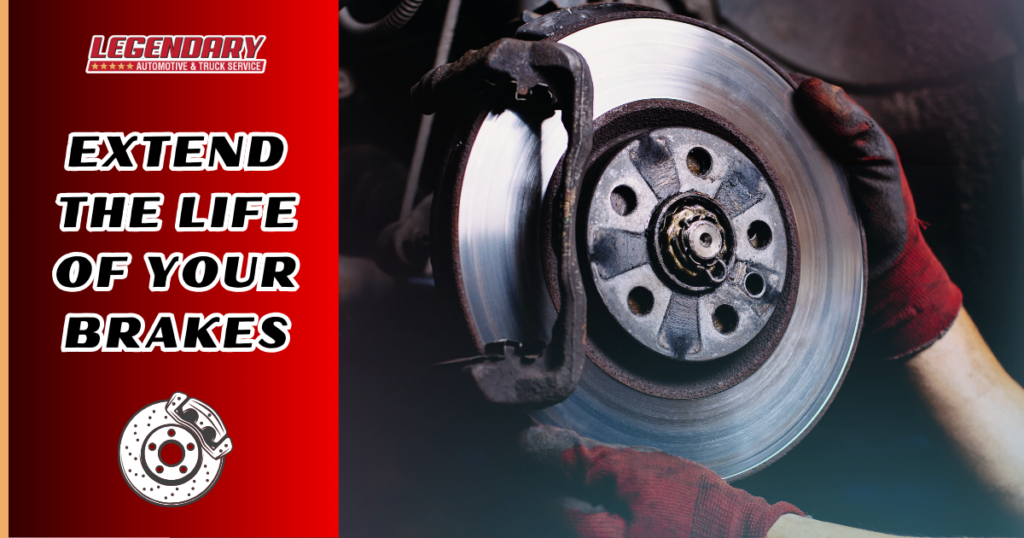HOW TO EXTEND THE LIFE OF YOUR BRAKES

Here are some key ways to extend the life of your car’s brakes:
Develop Defensive Driving Habits:
Anticipate Stops: Avoid slamming on the brakes by looking ahead and anticipating upcoming stops, traffic lights, or situations that may require slowing down. This reduces the need for sudden, forceful braking.
Maintain a Safe Following Distance: Leaving ample space between you and the car in front allows you to react smoothly to situations without needing heavy braking.
Minimize Speeding: The faster you go, the harder your brakes need to work to slow you down. Maintaining moderate speeds reduces brake wear.
Engine Braking (if applicable): For vehicles with manual transmissions or automatics with a manual mode, use engine braking to slow down by downshifting. This can help reduce reliance on the brakes, especially on downhill slopes.
Regular Maintenance is Key:
Schedule Brake Inspections: Don’t wait until you hear grinding noises or experience braking problems. Have your brakes inspected regularly by a qualified mechanic as part of your routine maintenance schedule. This allows for early detection of worn pads or other issues.
Follow Maintenance Intervals: Replace brake pads and rotors according to the manufacturer’s recommendations or your mechanic’s advice. Don’t wait until they are completely worn out, as this can damage other brake components.
Quality Brake Pads Matter: Invest in high-quality brake pads when replacements are needed. Cheap pads may wear out faster and compromise braking performance.
Driving Habits Make a Difference:
Avoid Riding the Brakes: Constantly keeping your foot on the brake pedal creates unnecessary friction and wears down the pads more quickly.
Come to Complete Stops: Avoid stopping and starting frequently in slow-moving traffic whenever possible. This can be hard on your brakes. If you anticipate a long wait, try to find a safe spot to pull over and turn off the engine instead of idling with your foot on the brake.
Parking Brake, Not Brake Pedal: Always use the parking brake to hold your car when parked, not the brake pedal. The parking brake is designed for this purpose, and using the brake pedal can put unnecessary strain on it.
Be Aware of Load:
Carrying Extra Weight: The heavier your car is loaded, the more stress is placed on the braking system. Avoid overloading your vehicle, and keep cargo weight within the manufacturer’s recommendations.
By following these tips, you can significantly extend the lifespan of your brakes, improve fuel efficiency, and ensure safe stopping power for miles to come. Remember, healthy brakes are essential for safe driving!







